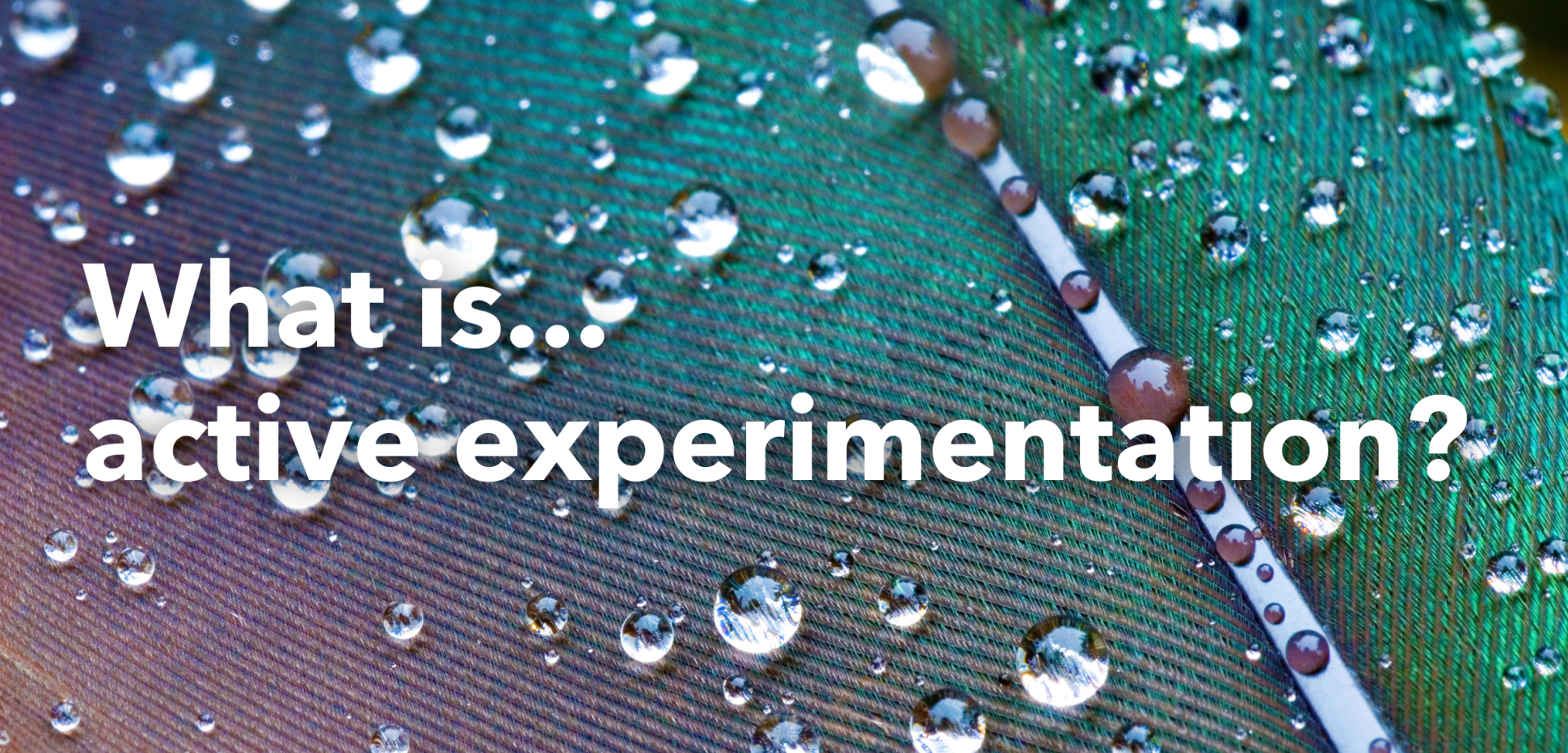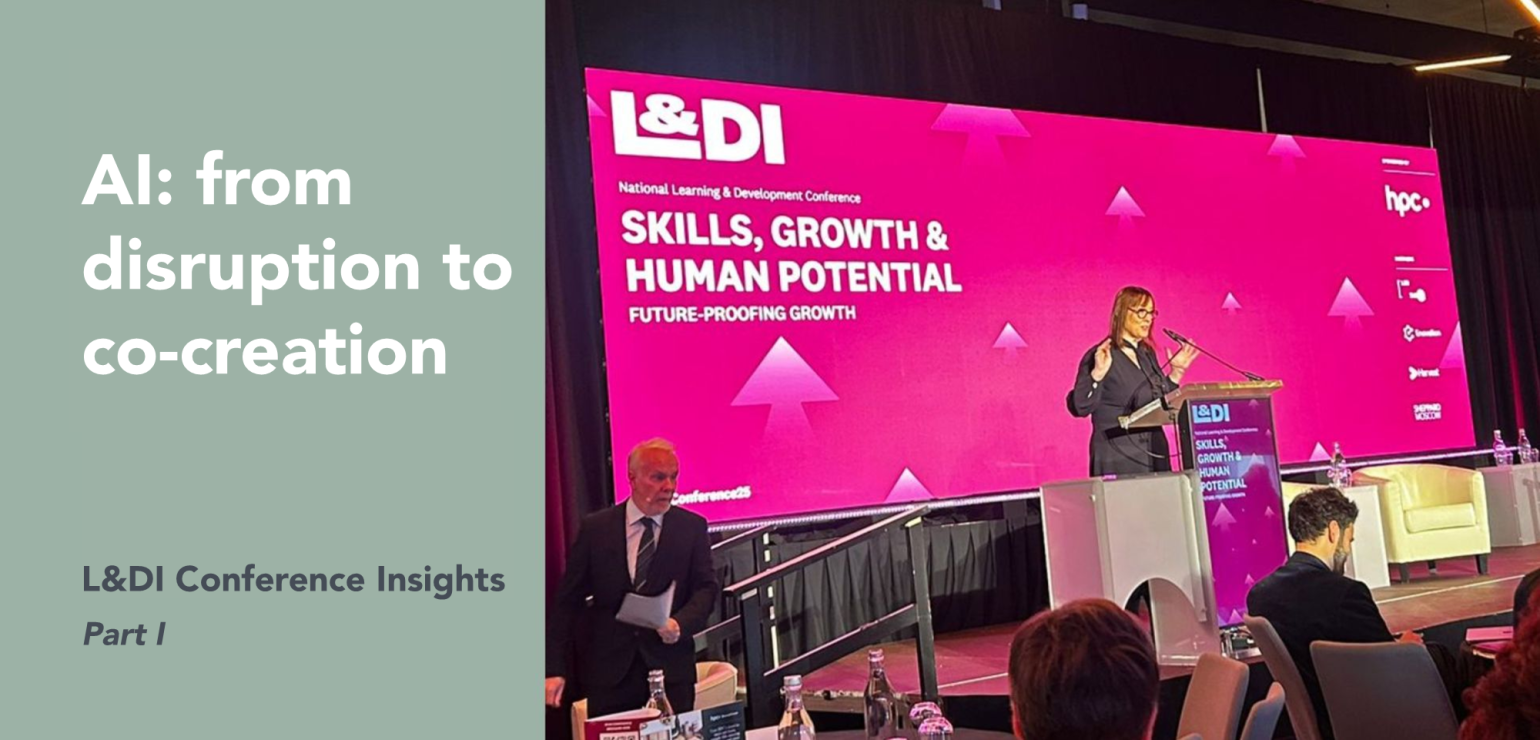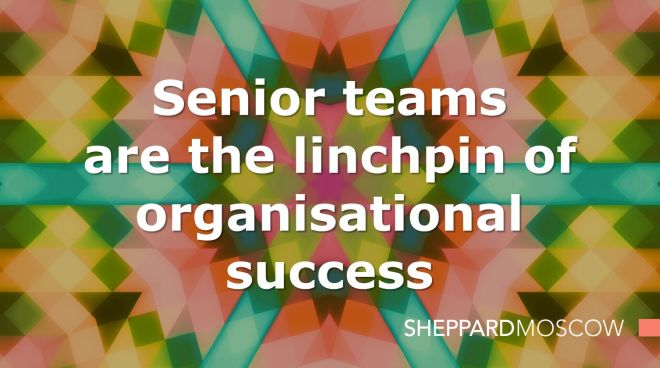What is... active experimentation?

When a leader doesn’t know the answer to something they can engage in active experimentation to test a hunch, to learn, to try again. It is a disciplined practice of setting an experiment in a live business context, of being open to smart failure, and being ready to learn and try again.
Why is active experimentation so important for organisations?
The world is getting more complex. This means the ecosystem is more intertwined, many different things impact whether an organisation is successful – it’s political, economic, digital, it’s people and culture. So increasingly for organisations the crux of being successful in this complex web is the ability to decode tricky problems navigate toward a solution.
Active experimentation is suited for this complexity, as it does away with out-dated notions of linear progress. Instead of traversing the well-worn path from A to B to C – a path built for a different time – leaders can find their own way through testing and measuring, able to make better informed decisions and course correct as needed.
Active experimentation is a team sport
No leader operates in isolation, and good active experimentation requires the cooperation of the team to pool expertise and devise and execute the experiment. For starters, your learning gets better the more diverse the viewpoints. Experimenting as a team also allows for greater creativity and innovation – both crucial for devising experiments and ideating possible solutions. It also shares learning back into the organisation instead of pooling knowledge with a select few, you learn as a group about how to move things forward in the organisation.
Beyond an intervention to embedding culture with Sheppard Moscow
Active experimentation is not a methodology unique to Sheppard Moscow, but we take it to the next level. We design our programmes to genuinely hold leaders through the process, often over a 6-month to 1-year period.
Without ongoing support, it is very difficult for leaders to push against an organisational culture in which completing the project plan is more acceptable than being successful via unorthodox means. Our approach enables leaders to go out and experiment, then return to an oasis of peers who are doing the same, to be re-energised and get back to the core idea of experimentation and learning before going out and trying again.
Our coaching throughout the programme is primarily focused on helping the leaders make sense of their experiments, to refine the experiment, to iterate, to understand the learning and then set them up to go again.
Active experimentation with cutting-edge organisations
Ericsson on the Move
We were delighted to contribute to a wider culture transformation project with Ericsson. Our programme reached 8000 managers globally, helping them to make inroads into the different kinds of cultural behaviours that they were trying to introduce the organisation to. This wasn’t about a ‘big bang’ answer, but rather experimenting and finding the way at scale.
Ericsson on the Move had a significant positive impact on their engagement scores, retention scores and the wider company performance.
Download the full case study here.
Vodafone and the CX Labs
We first developed a leadership programme centred around active experimentation to improve innovation across the business, and the results demonstrated big breakthroughs around innovation in digital for the customer.
This developed into the Customer Experience (CX) Labs. This global programme saw leaders across the business innovating in policy and digital tools, collaborating in new ways across functions, and having a real impact in their market.
For the full story, you can read the case study here.
Financial services
How we design active experimentation is always evolving, and it is currently the central methodology in work we are doing with organisations in the Private Equity sector. This sector is extremely pressurised, demanding high returns in short time scales. Active experimentation enables leaders of portfolio companies to ‘slow down to speed up’; to invest time into finding more effective ways of operating, to understand and leverage new technologies and then capitalise on that learning to advance the company.
So, what is active experimentation? It’s a leadership methodology, a pathfinding methodology, centred around learning and teamwork. Through systematically trying new things, measuring outcome, learning and readjusting where necessary, leaders and their teams can improve organisational effectiveness and deliver on strategy in a complex world.
Check out our blog 1 mindset and 4 practices for innovation to learn more about active experimentation as a driver for innovation, or to learn about the importance of experimentation in large-scare transformation, read on here.

 Alex Marples
Alex Marples 
 Aoife Keane
Aoife Keane 
